US General Urges Israel To Share Defense Systems With Regional Allies
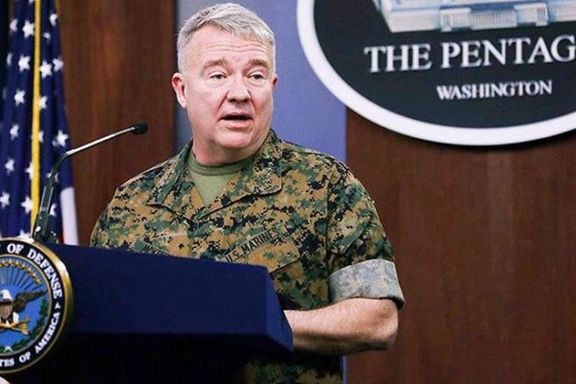
Outgoing CENTCOM commander Gen. Kenneth McKenzie has called on Israel to shares its air and missile defense systems with its regional allies to counter the Iranian threat.

Outgoing CENTCOM commander Gen. Kenneth McKenzie has called on Israel to shares its air and missile defense systems with its regional allies to counter the Iranian threat.
Gen. McKenzie told the Senate Armed Services Committee on Tuesday that such a step would bolster security cooperation between Israel and its fellow Arab CENTCOM members, including Iraq, the United Arab Emirates, Kuwait, and Saudi Arabia.
He said the most pressing and significant issues all the states in the region confront regarding Iran are air and missile defense, and Israel’s entry into CENTCOM “has great opportunities, particularly in the area of integrated defense”.
Referring to threats by Iran's ballistic and cruise missiles as well as drone program, he said, "Everyone in the region is seized by the Iranian threat, and they want to be able to defend themselves against that threat — that threat is primarily in the air”.
Describing the Islamic Republic’s ballistic missile program as an "exigent threat", McKenzie added, "They have over 3,000 ballistic missiles of various types, some of which can reach Tel Aviv. Over the last five-to-seven years, they have invested heavily in the ballistic missile program. Their missiles have significantly greater range and significantly enhanced accuracy.”
"Iran continues to pose the greatest threat to US interests and the security of the region as a whole. Through its proxies and clients, Iran has fomented conflict, an arc tracing from Yemen through the Arabian Peninsula, across Iraq and Syria and Lebanon and to the very borders of Israel," he noted.
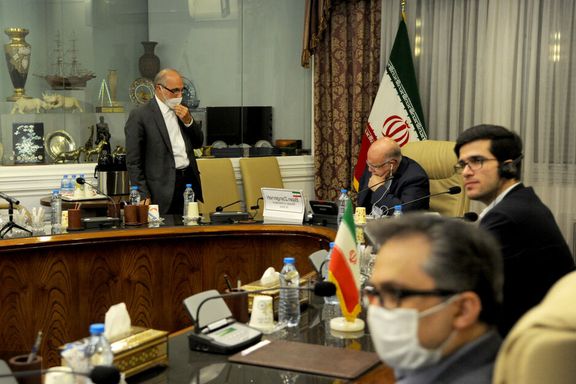
IRGC has banned many oil officials of the former government from leaving Iran for fear of revealing sanctions-busting methods, a hactivist group has revealed.
Edalat-e Ali group has provided a copy of a highly confidential letter to Iran International which includes a list of 37 mid-level officials of ex-President Hassan Rouhani’s administration, including 16 oil ministry officials and six working in the gas field, that the IRGC wants to be banned from leaving the country.
The letter dated September 6, 2021, with an attached list from the Revolutionary Guards (IRGC) Intelligence Organization to the Revolutionary Prosecutor of Tehran Ali Alghasi-Mehr also cites reasons for the bans. In the case of most oil officials the reason is preventing them from revealing "secret information" on how Iran manages to circumvent US sanctions to sell crude oil.
IRGC revenge
Nicosia-based oil and gas reporter Behzad Ahmadinia told Iran International that Iranian officials in sensitive positions are commonly banned from leaving the country after the end of their tenure or must get permission to do so. However, he said, the fact that the IRGC has taken extraordinary action in this case is significant.
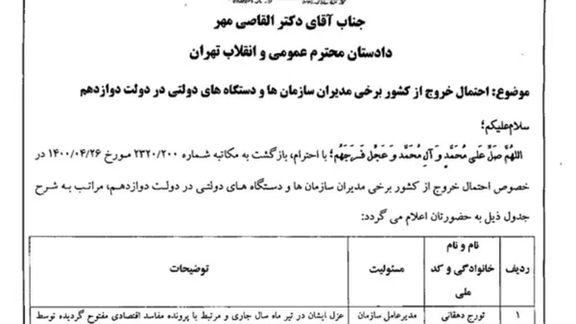
The IRGC forced the Rouhani administration to give up the government monopoly on oil exports during US sanctions, Ahmadinia said, explaining that they went as far as confiscating tankers belonging to the oil ministry under the pretext of seizing "smuggled oil" to get control of the profitable illicit oil sales.
"This is part of settling accounts with officials who resisted surrendering oil and oil products exports to the IRGC which they eventually had to do … This is revenge … Otherwise information on circumvention of sanctions is no longer secret," he said.
In recent weeks, Iran’s hardliner dominated parliament at least twice decided to give oil to the Guards to “sell” and use the money for their projects.
Sanctions evasion
Iran devised various methods to circumvent international sanctions, first imposed in 2011 by the UN Security Council, by recruiting businessmen, officials and IRGC networks to clandestinely market the crude, often at a much higher cost to Iran. Such methods resulted in several major corruption schemes and misappropriation of billions of dollars in oil and petrochemical sales that came to light after the UN sanctions were removed.
Such methods were employed again after former US President Donald Trump pulled out of the 2015 nuclear deal, Joint Comprehensive Plan of Action (JCPOA) in 2018 and re-imposed sanctions on Iran.
Oil exports dropped to around 200,000 barrels per day in 2019, but in late 2020, Tehran increased its sales through illicit channels. China is the biggest buyer, with shipments disguised as exports from other countries.
Hardliners sell more oil
The Raisi administration and its political allies say his government has a far better record than his predecessor, Hassan Rouhani, in economic performance, including circumventing US sanctions. In a speech in January Raisi said oil exports had increased by 40 percent after he took office, and that Tehran pursued a dual-track policy of circumventing US sanctions and working for their removal.
In the case of some of the officials named in the list, including officials of the Persian Gulf Petrochemical Industries, the IRGC intelligence organization demanded that they be prevented from leaving Iran for involvement in corruption and bribery. The Persian Gulf Petrochemical Industries is a public holding company active in investment and administering natural-gas processing plants, chemical factories, oil and polymer. It is the second-largest petrochemical industries holding in the Middle East.
Other reasons offered by the IRGC intelligence for demanding such a ban also included affiliation of an official's brother to the exiled opposition group Mujahedin-e Khalq (MEK) and his family's residence in Spain.
An official of the oil ministry has also been accused of "multi-layered connections with infiltration networks" and the National Iranian American Council (NIAC), a lobbying NGO based in the US.
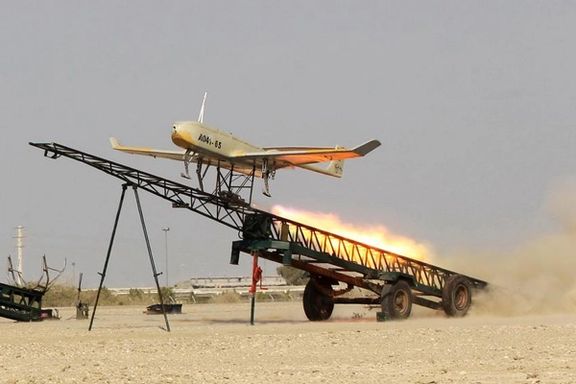
An Israeli aerial attack reportedly destroyed hundreds of drones at an airbase belonging to the Revolutionary Guard in the Iranian province of Kermanshah last month.
According to a report published by Haaretz on Tuesday, six Israeli drones struck the base in Mahidasht region near the western city of Kermanshah in a covert operation that may be the motive for Tehran's Sunday missile attack on Erbil, along with the recent airstrike near Damascus that killed two IRGC officers.
The report said the mid-February attack caused major damage to the Islamic Republic’s drone fleet, with some estimates saying that hundreds were destroyed.
Until recently, neither country had gone public about years of covert drone war between the two archrivals.
Lebanese television station Al Mayadeen, with links to both Hezbollah and the Islamic Republic, reported the Israeli attack for the first time on Sunday, saying the bombing of the Kermanshah drone site prompted the retaliatory attack in Erbil, which claimed it targeted a secret Israeli intelligence base.
Press TV quoted the secretary general of pro-Iran Harakat Hezbollah al-Nujaba as saying that the Kurdistan region authorities “provide Mossad agents with refuge” which makes it allowable for any party to target the “Zionist spies.”
Some Iran-backed sources said the Erbil attack had several casualties but according to official reports no one was killed but the missiles damaged some residential buildings.
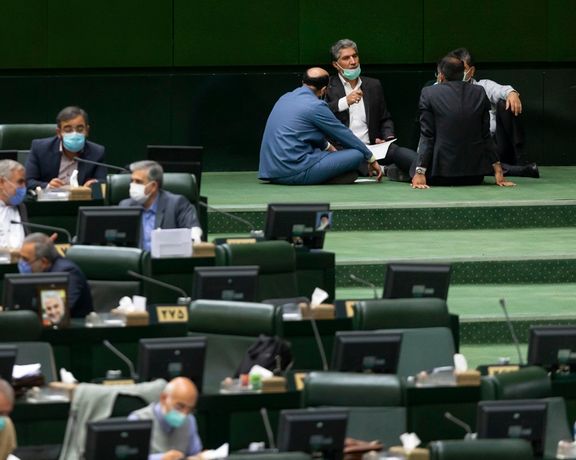
The Iranian parliament has issued a statement praising the Revolutionary Guard for its ballistic missile attack at Iraq’s Erbil on Sunday.
The statement, which was signed by 213 lawmakers and read out at the parliament on Tuesday, described the IRGC as one of the achievements of the Islamic Revolution and expressed support for the IRGC’s “decisive action”.
Reiterating that the target of the attack was a "strategic center for conspiracy and evil of the Zionists” in Erbil, they said “procrastination in responding to the enemy (Israel) makes it more arrogant”.
“Iran's national security and the country's armed forces are among the red lines for the nation's representatives”, the statement said, adding that “We consider the recent courageous action in accordance with the laws approved by the country and the protection of the borders of our beloved homeland”.
Earlier on Monday, the Supreme Judicial Council of the Iraqi Kurdistan Region called on Baghdad to refer the case of Iran's attack to the UN Security Council, saying the government must take all necessary measures against the violation of Iraq’s sovereignty.
The council also urged the Iraqi parliament and international institutions to take "decisive and serious" action to stop Iran's strikes.
Iran fired missiles at Erbil saying it targeted an Israeli secret base. No one was killed but missiles did damage to some residential buildings.
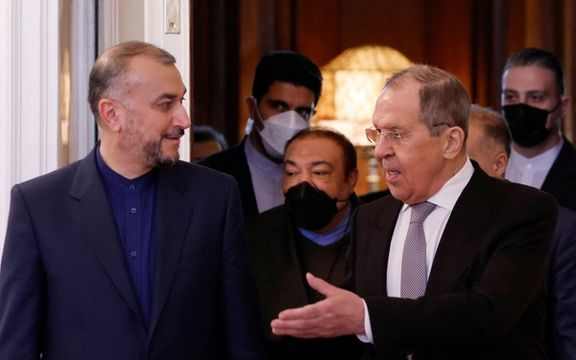
Washington could now seek an “alternative” to the 2015 Iran nuclear deal, the State Department spokesman Ned Price said Monday.
With 11-month talks in Vienna struggling to reach agreement on reviving the 2015 deal, a complication was added March 5 when Russia foreign minister Sergei Lavrov announced Moscow wanted assurances that any sanctions over Ukraine would not affect its economic and other relations with Iran.
Price said that while “we are not at that point, and…hope not to get there,” Washington was open to “engage bilaterally [with Iran] on these pressing and urgent matters.”
Russian Foreign Minister Sergei Lavrov meeting with visiting Iranian foreign minister on Tuesday said US suggestions that Moscow was blocking efforts to revive the Iran nuclear deal were untrue, following talks with his Iranian counterpart Hossein Amira-Adollahian in Moscow.
Lavrov made a surprising statement saying Russia had received written assurances from Washington that sanctions against Moscow over Ukraine would not hinder cooperation within the framework of the deal, which lifted sanctions on Tehran in return for curbs on its nuclear program.
Washington has not mentioned any assurance granted to Moscow, whether just to facilitate the implementation of a revived JCPOA or otherwise.
Rising tensions with talks paused
Tensions in the Middle East have been raised with the pausing of the Vienna JCPOA talks, leaving US ‘maximum pressure’ sanctions on Iran continuing and the expanded Iran nuclear program running.
Israel and the United Arab Emirates, both lukewarm over the US approach to the Ukraine crisis, have made a joint approach to Washington seeking greater military aid.
Iran, which fired missiles Sunday at an alleged Israeli base in Erbil, northern Iraq, Sunday in retaliation for an Israeli airstrike March 7 in Damascus that killed two Iranian soldiers. Tehran has also paused talks with Saudi Arabia after the Saudis announced the beheadings of 81 people, around half of whom the United Nations High Commissioner for Human Rights Michelle Bachelet said were Shia who had taken part in political protests.
Greater impunity
Price said Monday that the Iranian missile strike was “clear violations of Iraq’s sovereignty” and a taste of how Tehran might act “with far greater impunity if it were not verifiably and permanently constrained from obtaining a nuclear weapon.”
Noting that the Vienna talks over JCPOA revival had involved “complex negotiations” that could now be “something close to the finish line,” Price stressed there were still “outstanding issues… the hardest issues” left to resolve.
Added to these, Price said that there were “now some external factors that are weighing on where we are” –a reference to Lavrov’s demand that any sanctions over Ukraine should not affect JCPOA implementation, in which Russia has been expected to play a central role, especially in shipping out Iranian enriched uranium in excess of JCPOA limits.
JCPOA ‘best vehicle’
“You may have seen the statement from the E3, our French, our German, our British partners, that came out over the weekend,” Price explained. “It said, ‘Nobody should seek to exploit JCPOA negotiations to obtain assurances that are separate to the JCPOA.’ We would certainly endorse that statement.”
In stressing that Washington’s preference was for agreement in Vienna as “the best vehicle to achieve our policy objectives,” Price echoed the statement from Antony Blinken March 9 that Washington and Moscow had a common interest in limiting the Iranian nuclear program through reviving the JCPOA.
Price floating the notion of a bilateral US-Iran agreement might be an attempt to upset Moscow or disorientate Tehran. But the spokesman gave no indication as to why bilateral talks with Iran outside the Vienna process might suddenly overcome the outstanding issues that negotiators have failed to resolve in 11 months.
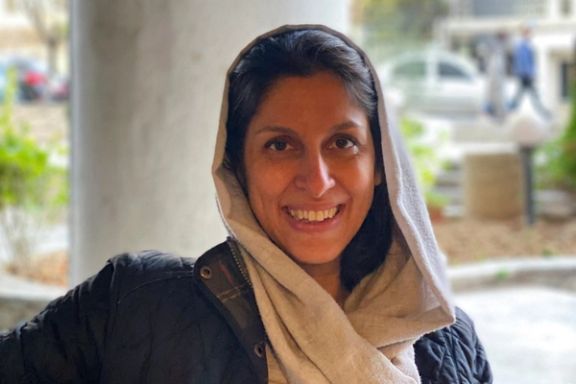
The Iranian lawyer of Nazanin Zaghari-Ratcliffe, an Iranian-British citizen held in Iran for nearly six years, has spoken of “good news” about her client soon.
Hojjat Kermani expressed hope on Tuesday about her release within the next few days, saying, "I am hopeful that we will have good news soon”.
Negotiations over the release of the imprisoned charity worker who’s been detained by Iran since 2016 have seen progress, Kermani said.
UK MP Tulip Siddiq tweeted, “Nazanin Zaghari-Ratcliffe has been given her British passport back.” “She is still at her family home in Tehran. I also understand that there is a British negotiating team in Tehran right now,” she added.
The news can be seen as a sign that prisoner swap negotiations underway in parallel with the Vienna nuclear talks with Iran might have moved in the right direction.
Iran's foreign ministry spokesman Saeed Khatibzadeh said in February that a prisoner swap was on the agenda in parallel with the nuclear talks.
Britain is also understood to have agreed to repay a £400 million debt it owes Iran relating to an abortive deal to export British armaments in the 1970s.
Iran is holding several Western prisoners in what human rights organizations have dubbed hostage diplomacy, accusing the Islamic Republic of holding dual-nationals as bargaining chips for money or leverage in negotiations with the West, something Tehran denies.
Zaghari-Ratcliffe served five years in prison after being taken into custody at Tehran's airport in April 2016 and convicted of plotting the overthrow Iran’s government, a charge that she, her supporters and rights groups deny.